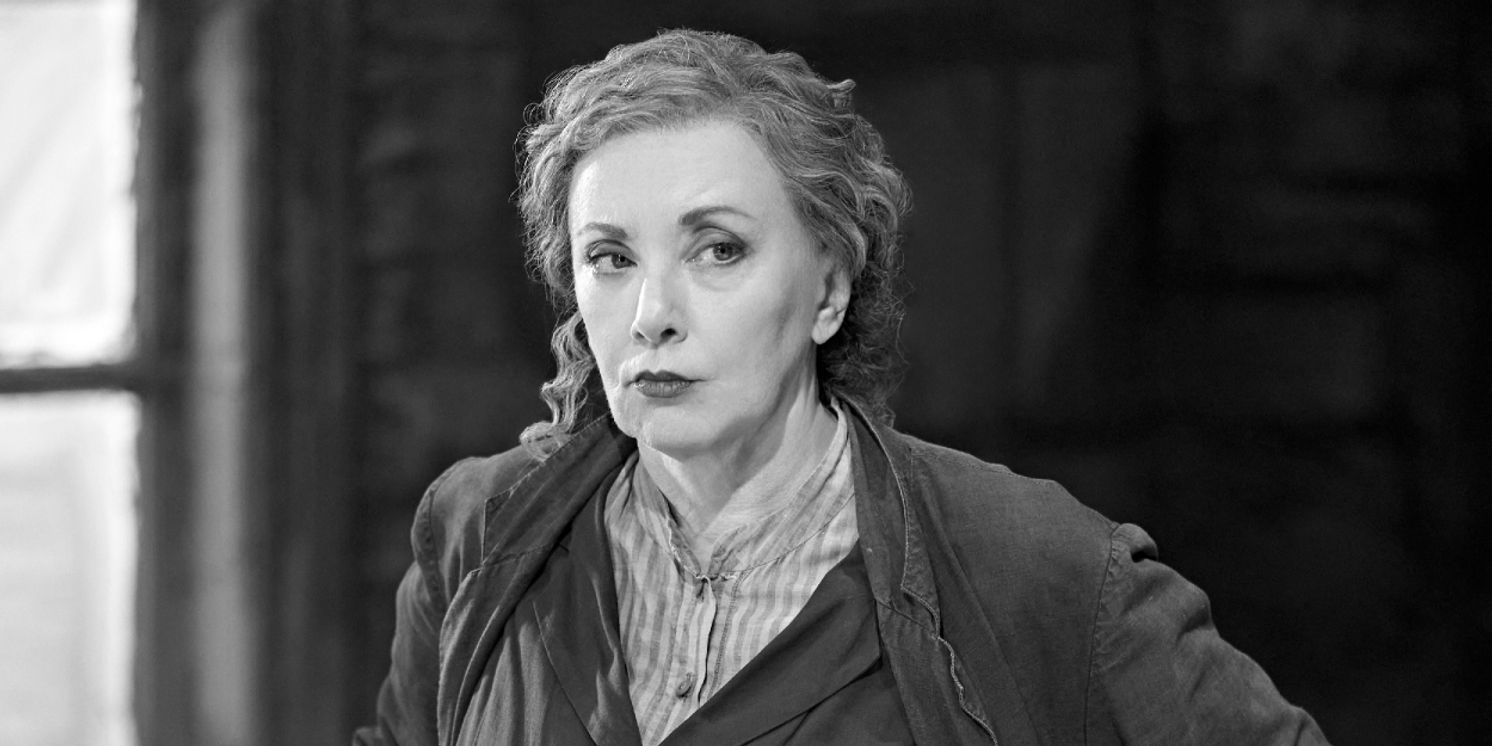Review: JUNO AND THE PAYCOCK, Gielgud Theatre
Seán O'Casey's masterful tragicomedy is given the star treatment

![]() A cost of living crisis, people being fit to work but choosing not to, poverty, nationalism and women's control of their own bodies. Seán O'Casey's Juno and the Paycock may have first been performed at The Abbey Theatre in Dublin in 1924, but a century later, his tragicomedy resonates more strongly than ever.
A cost of living crisis, people being fit to work but choosing not to, poverty, nationalism and women's control of their own bodies. Seán O'Casey's Juno and the Paycock may have first been performed at The Abbey Theatre in Dublin in 1924, but a century later, his tragicomedy resonates more strongly than ever.
Set in a squalid and decaying tenement in 1922 Dublin, we meet the Boyle family who is, like everyone else, flat broke. Matriarch Juno is the only one who works, alone in supporting her family and trying to find employment for her feckless and workshy husband Jack, who develops sudden pains in his legs when the possibility of a job looms.
Daughter Mary is on strike to support the trade unions and son Johnny lost an arm in the Easter Rising. Out of the blue, a stranger reveals that the family have been left a small fortune in a will. An array of new furniture, clothes and drink are quickly bought on credit in the expectation of the inheritance. But the family's good luck is, perhaps predictably, short-lived.
O'Casey's writing always explores the balance between comedy and tragedy and director Matthew Warchus has decided to really push the comedy in the first act, in stark contrast to the sledgehammer of sadness and tragedy waiting in the second half of the play. It lands a heavy blow.
The play certainly has star casting, but it is not entirely successful. Mark Rylance, as 'Captain’ Jack Boyle is the titular peacock – pronounced ‘paycock’ in a broad Dublin accent, preferring to peruse the newspaper and drink with his mates, rather than do anything approximating work.
_%20Credit%20-%20Manuel%20Harlan_%20050.jpg?format=auto&width=1400)
His interpretation of the character will divide audiences; Rylance employs slapstick combined with pathos, evoking a Chaplin-esque persona that even extends to his toothbrush moustache. He frequently breaks the fourth wall and hams up the drunken physicality of the role, goofily clowning and pulling faces.
It's an impressive performance and some of the audience seemed to love this interpretation, but I found it interrupted the flow of the production and made his portrayal, at least in the first half of the show, almost pantomime in tone. It also did not fit with the register of the rest of the cast, creating a feeling of disconnection and awkwardness.
J. Smith-Cameron has a commanding stage presence as Juno; her Dublin accent occasionally slips a little in the speed of delivery, but she really conveys the strength, pragmatism and compassion of the character. This is a women who is tired to the depths of her bones with her life.
The rest of the cast is strong. Aisling Kearns is excellent as the fiercely intelligent Mary Boyle, who reads Ibsen and aspires to a better life, whilst also taking great care in choosing what colour ribbon to wear in her hair. Eimhin Fitzgerald Doherty is suitably tragic, but perhaps underwritten, as erratic son Johnny Boyle, haunted and disturbed by his experiences of fighting for Ireland.
_%20Credit%20-%20Manuel%20Harlan_%20141.jpg?format=auto&width=1400)
As the Captain's drinking buddy Joxer, Paul Hilton deftly balances the roguish caricature of the role, with its sycophantic hypocrisy and Anna Healy is great fun as the larger-than-life neighbour Mrs Madigan.
In his writing, O’Casey’s main intention was to show the reality of the poverty and hardship of the working class Irish people. He questioned whether the Irish nationalist cause and all its promises really made anything better for Dublin’s poor and needy. Warchus' direction taps into this highlighting of injustices, particularly against women, in a society in thrall to the church that is highlighted by the twinkling silver crucifix constantly dangling over the cast at the front of the stage.
Rob Howell's design evokes the clautrophobic stagnation and interminable greyness through a predominantly monochrome set with small splashes of colour. Crumbling buildings tower in the background and even the red stage curtain is tattered and crumpled; a reminder of the wretched characters that lay behind it.
Poetic and poignant, this potentially great revival feels a little too uneven to soar.
Juno and the Paycock runs at the Gielgud Theatre until 23 November
Photo Credits: Manuel Harlan
Reader Reviews
Powered by
|
Videos

